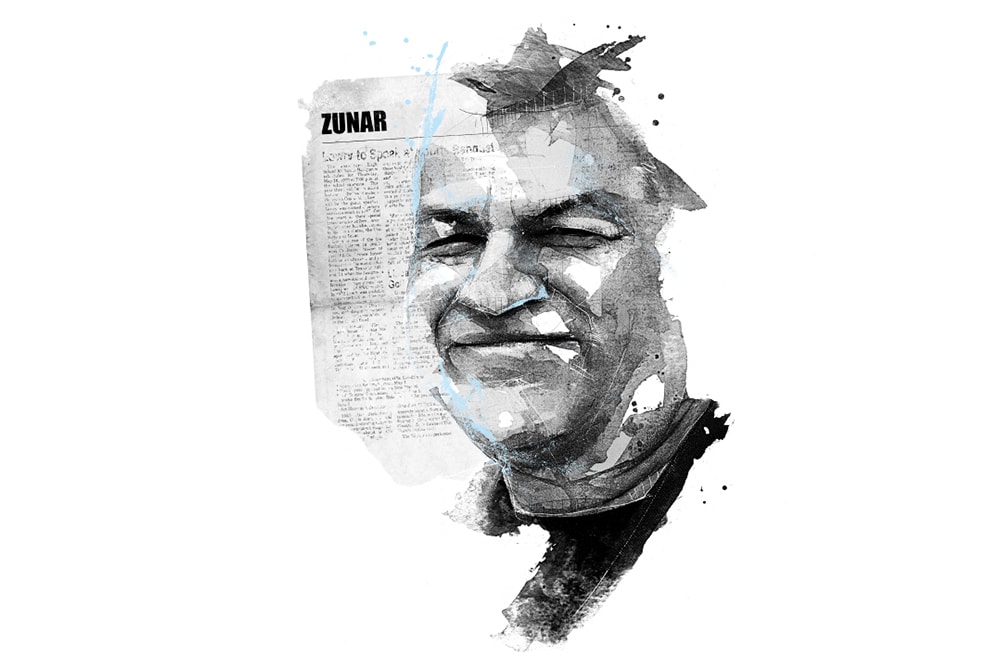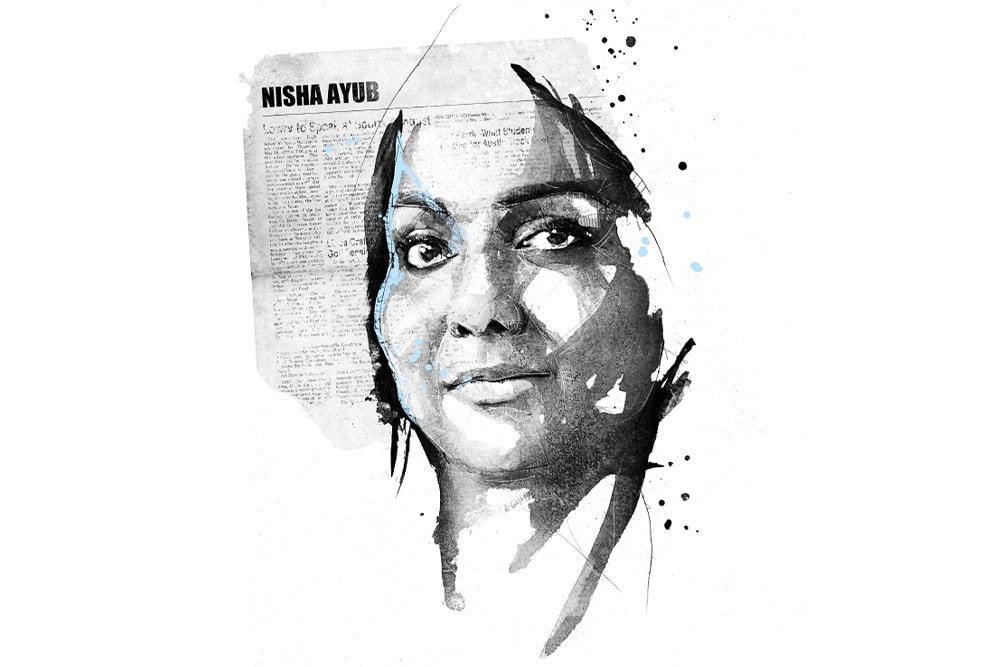Despite having various books banned, as well as multiple arrests, court cases and a travel ban, Malaysian cartoonist Zunar has earned huge popularity. But what is it about this anti-corruption activist that stirs up so much love and animosity?
In his acceptance speech at the CPJ International Press Freedom Awards in November 2015, Zunar said: I want to give a clear message to the aggressors -- they can ban my cartoons, they can ban my books, but they cannot ban my mind. I will keep drawing until the last drop of my ink.
Zunar started out young, displaying a talent for cartooning that got his first cartoons published at age 11 in a children’s magazine. By the 1980s he was contributing to the popular humour magazine, Gila-Gila, among others. At the start his work was not overtly political, but, in 1998, he became involved in the opposition Reformasi protest movement for which he spent some time in prison. On his release, Zunar decided that from then on his focus would be on political cartoons. His sharp wit and flair for satire gained him a loyal following, and he became a regular contributor to independent publications, notably the on-line news site, Malaysiakini.
Inevitably maybe, Zunar found himself in confrontation with authority. In 2009 he launched the bi-monthly Gedung Kartun (Cartoon Store), only to have its inaugural edition seized, ostensibly because it had not received a publication permit, a claim that Zunar disputed. The magazine had included drawings on sensitive issues including the suspicious death of a political aide working on anti-corruption.
In September 2010, Zunar was detained for two days of investigation into another collection of his cartoons, Cartoon-o-phobia, under the Sedition Act. This book was banned as criminal subversion. Another sedition charge was levied against Zunar in November 2014 for Komplot Penjarakan Anwar (Conspiracy to Jail Anwar). He tells that police demanded that he provide details of the online payment system that would then give them access to the names of those who had bought the book. His assistants were also interrogated, his website manager questioned, and distributors of the book were threatened. Just a month earlier, Zunar’s appeals against the seizures of his books in 2009 and 2010 had been accepted. The court said that the government had acted ‘unreasonably’ and that ‘ridiculing politicians does not threaten public order’.
Yet the harassment did not stop there. In February 2015, Zunar was again arrested and held for three days under the Sedition Act, this time for his tweets (@zunarkartunis) commenting on the sentencing of opposition politician Anwar Ibrahim to five years for indecent acts.
In September 2015 yet another investigation was opened under the same Act, this time in regards to his book Supaman – Man of Steal. This time it was not Zunar, but his online sales assistant who was taken for questioning.
Then, on 26 November 2016, Zunar was again arrested, this time at the annual Georgetown Literary Festival in Penang. He was freed the next day pending investigation into charges of sedition, on condition that he checks in with police daily until 27 December. The reasons for his arrest lie in 20 cartoons, mostly satirising corruption in the Malaysian government. Just a day before his arrest in November, Zunar was forced to cancel an exhibition of his cartoons when around 30 men entered the space, verbally and physically attacked the artist, and vandalised his work. Members of the public intervened to stop the attack, and riot police were called to maintain order. Just three weeks later, he was again arrested, this time at a fundraising event that he was holding to recoup money he lost from previous seizures of his books. He was freed to face charges of ‘being detrimental to parliamentary democracy’ but not before 1,000 of his books were seized. In August 2017, he sued his persecutors and demanded the return of his books and t-shirts.
The defeat of the Najib Razak government in the historic May 2018 general election paved the way for the rise of the Pakatan Harapan coalition which pledged to implement democratic reforms, including the review and repeal of several draconian laws. The travel ban against Zunar was lifted that month. On 30 July 2018, the nine sedition charges against Zunar were dropped and authorities announced that they were no longer interested in pursuing criminal proceedings against the cartoonist.
Zunar held an ‘Art of Freedom’ exhibit and published a memoir titled ‘Fight Through Cartoons’, which narrates the harassment he faced for publishing political cartoons and posting art on social media. More importantly, he continued to comment on politics through his drawings. He has remained critical despite the change of government, and continues to emphasize the role of artists in society.
“As a cartoonist I will not stop performing my duties, to be a watchdog on the government of the day. I will still continue my fight through cartoons in my country.”
After Malaysia declared a state of emergency in January 2021, which empowered authorities to arrest citizens and netizens who “interfere” with the work of government during the pandemic, civil society groups warned that this could lead to human rights abuses. In May 2021, Zunar was summoned and interrogated by the police in connection with his cartoon lampooning a local official. Zunar’s phone was confiscated and he was not allowed to see the complaint sheet against him.
In an interview conducted by the Cartoonists Rights Network International in 2020, Zunar highlighted what artists should do when faced with repression.
“The best approach that cartoonists should take when dealing with repressive regimes is by hitting hard on their target, and that our pen should aim toward the most powerful. Good cartoons should have that; the right aim, a powerful target hit with a punch!”
He reiterated the duty of artists in a February 2021 interview with IFEX. He underscored why artists should serve as “frontliners who use art as protest and to amplify the people’s voice.”
Illustration by Florian Nicolle

